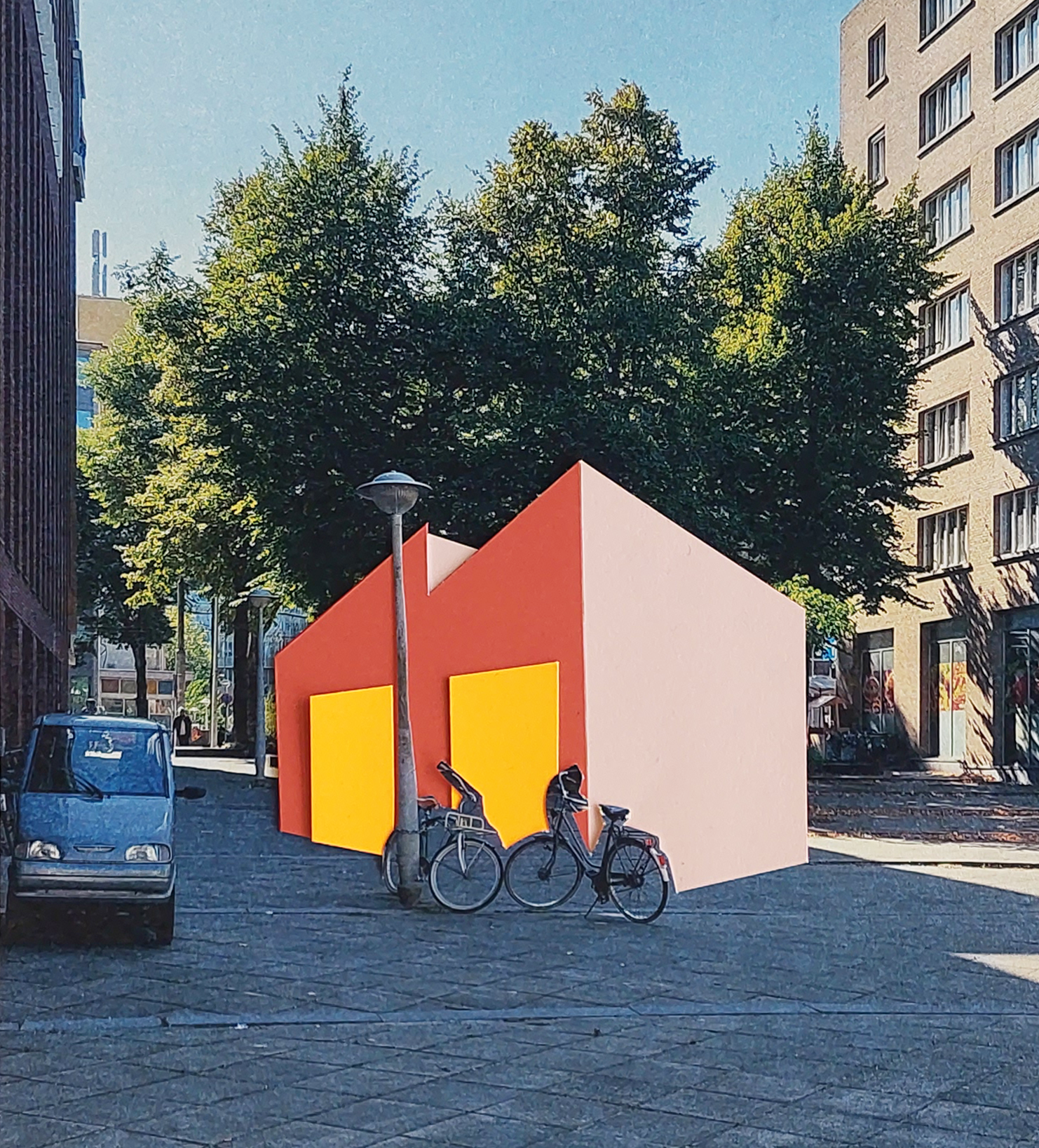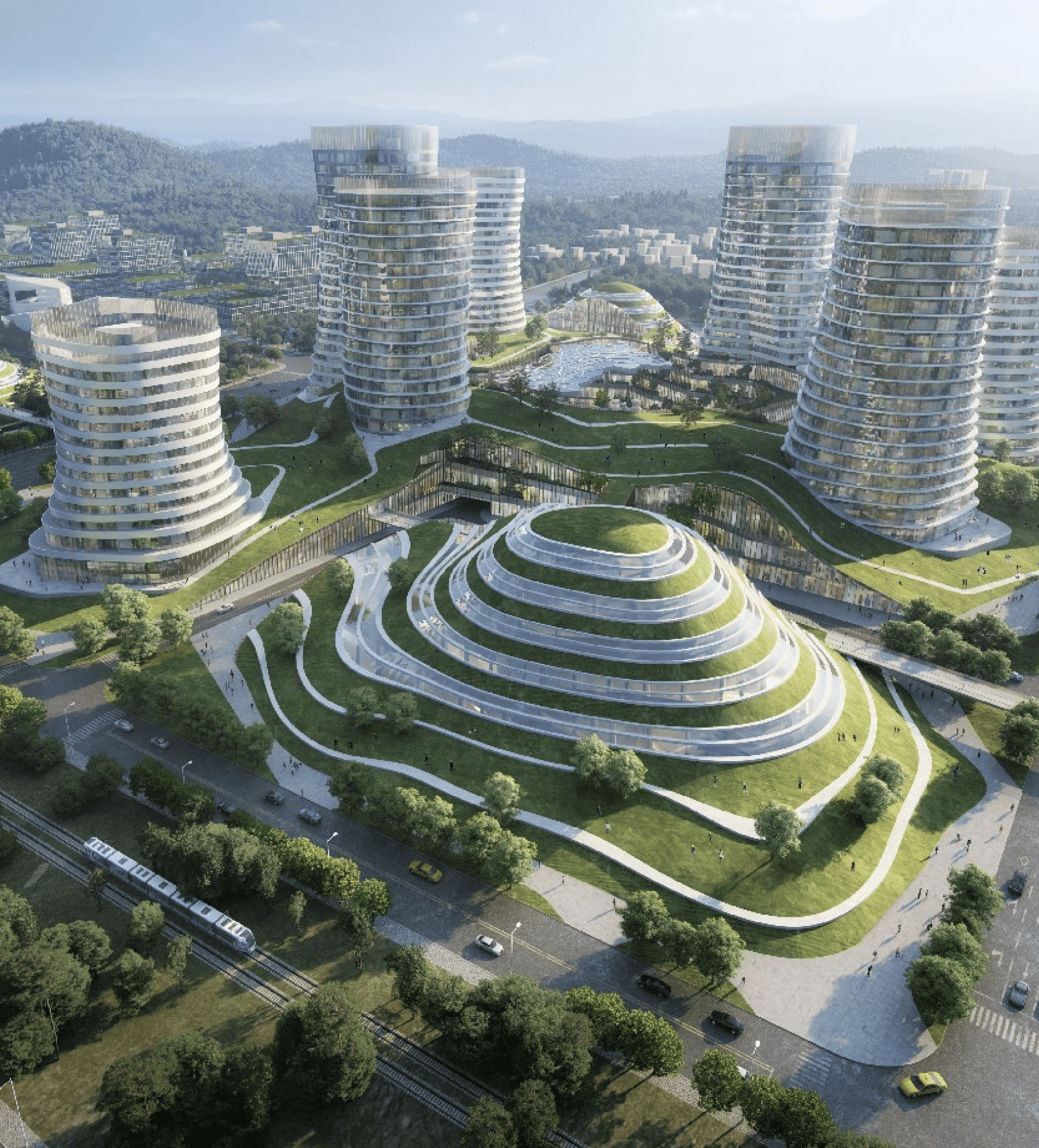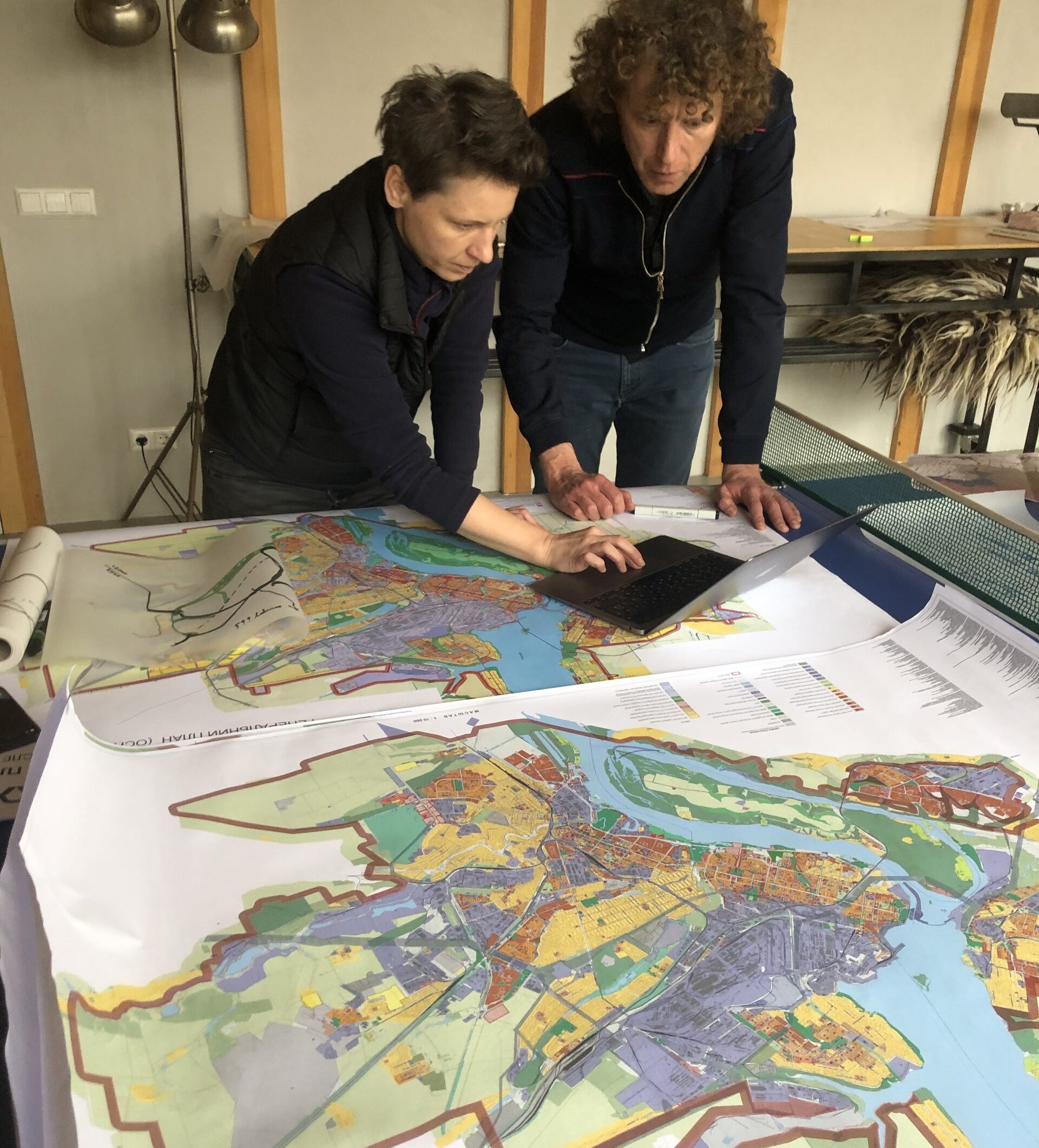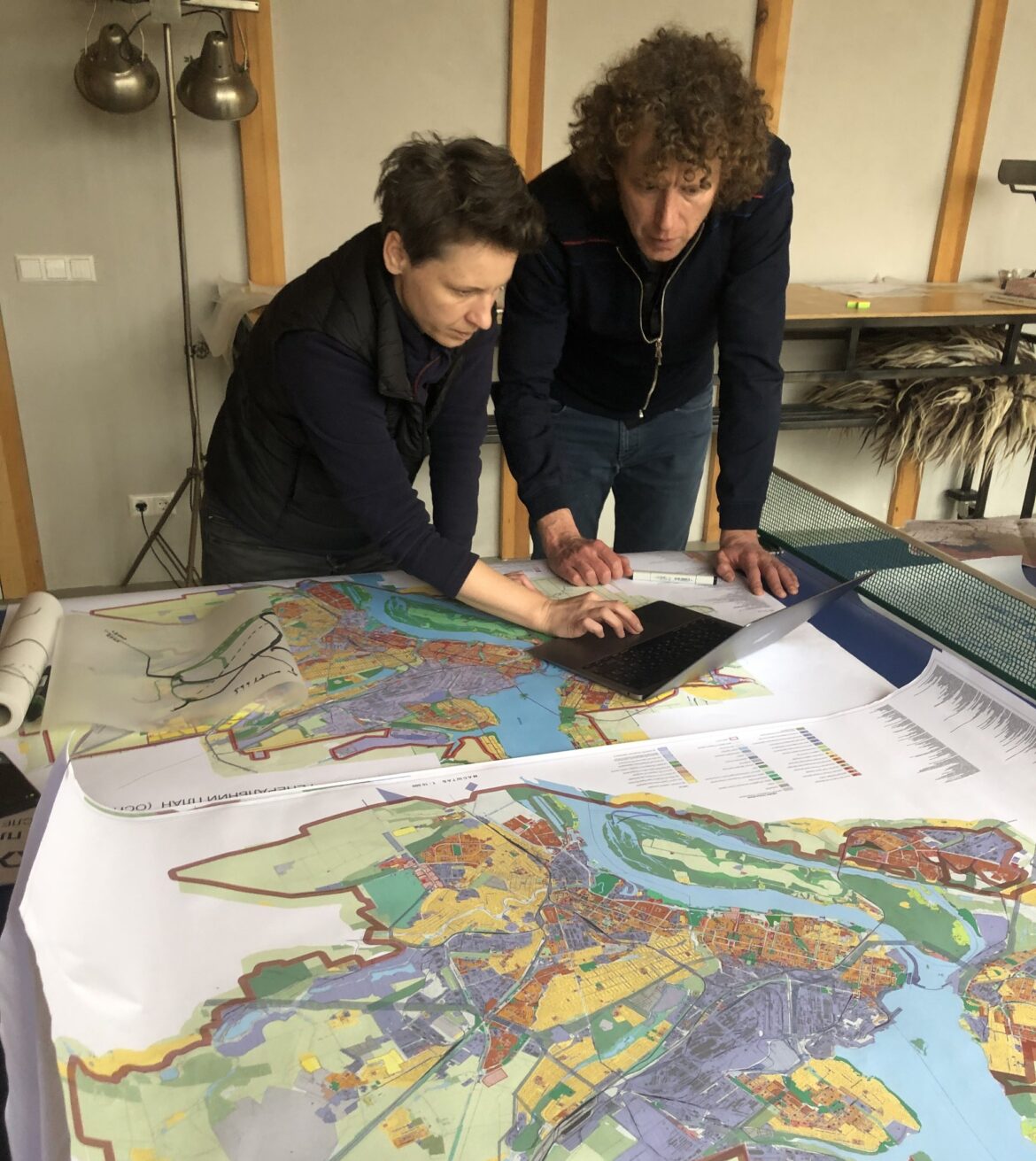
Building a future for Zaporizhia
Daryna Pasyuta is an experienced urban planner and designer from Kyiv, Ukraine. She joined INBO in 2022 after fleeing the war in Ukraine with her six-year-old daughter. From INBO, she has spent the last few years working with Ro3kvit on rebuilding her country.
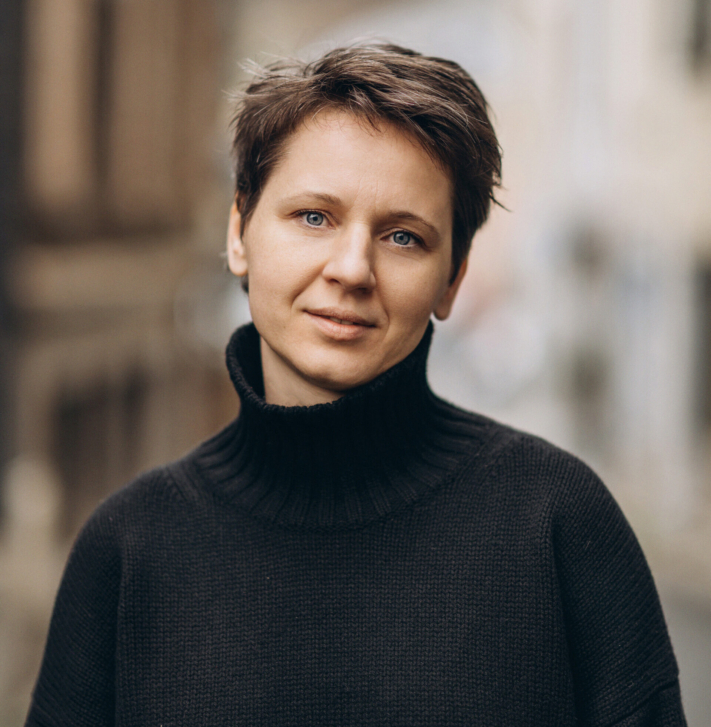
How can you make cities more resilient, even during the war?
In uncertain and turbulent times, old methods for creating urban strategies simply don’t work. We need to come up with a plan that is feasible when resources are scarce, and you don’t know what will happen tomorrow. Together with Ro3kvit we are looking at new methods.
Can you explain what Ro3kvit is?
Ro3kvit in Ukrainian means blooming. It’s a Ukrainian NGO, founded in March 2022 in response to the destruction caused by Russian military aggression. It’s a coalition of over 80 professionals from Ukraine and beyond united to create knowledge and methodologies for rebuilding the urban and rural areas and infrastructure. All experts have experience in developing projects in Ukraine or post-conflict planning. At least 60 per cent of the team members are Ukrainian. They include researchers, designers, policy advisors and educators with backgrounds ranging from architecture and urbanism to sociology and ecology.
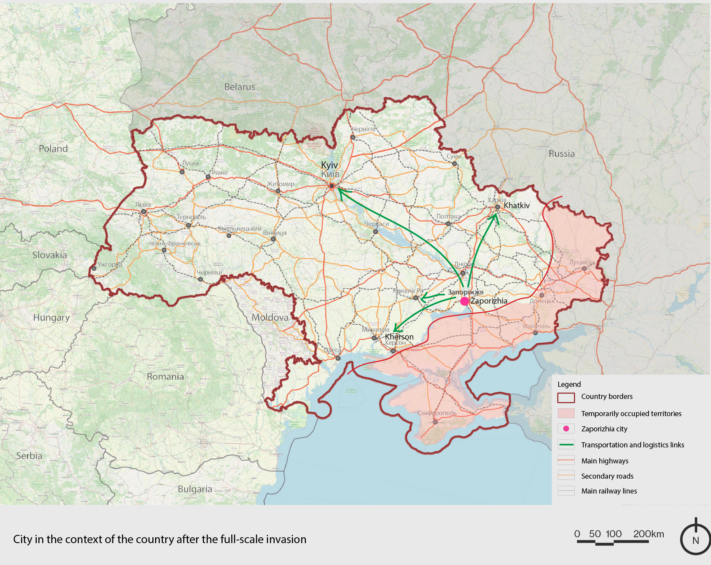
How did you get involved?
INBO felt a responsibility to support Ro3kvit, simply and effectively, so they gave me the opportunity to contribute to the future of Ukraine. It’s important for me to do something for the benefit of my country. It’s also a very ecological way of support from INBO’s side, because I stay in the context – I work with colleagues, locals, local authorities – this helps to prevent brain drain from Ukraine.
What project are you working on?
I was invited to join the team that was creating the urban vision for Zaporizhia. This frontier city, the size of Rotterdam, is in south-eastern Ukraine, just 30 kilometres away from the front line. It is now home to tens of thousands of refugees from Russian-occupied Ukrainian territory. Zaporizhia is the city where I was born and where my parents now live.
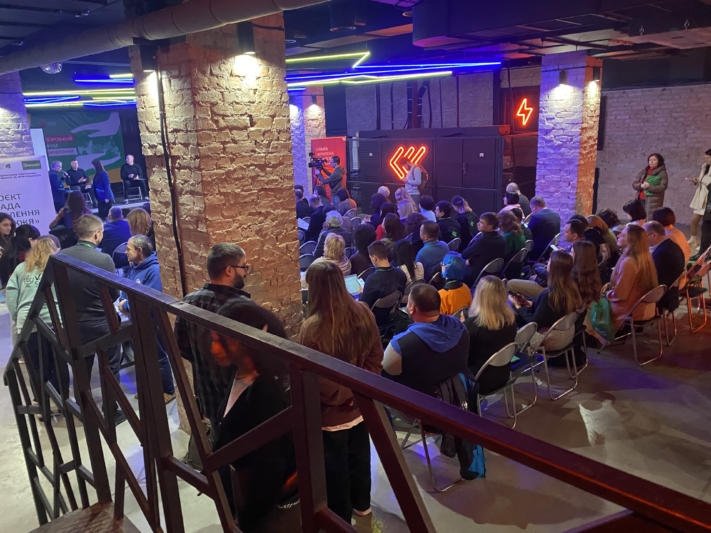
But do cities require urban strategies when the future is hidden in the fog of war?
Well, first we asked the city how we could help within our expertise. And when we started the consultations with the municipality and the residents, more than 100 people gathered in Zaporizhia to discuss it. In a bomb shelter, of course, because the city is under constant bombardment from the Russians. So, yes, the people of Zaporizhia are brave enough to look to the future of their city.
Can you describe the challenges the city is facing?
In Ukraine we face the same global challenges as you – migration, energy crisis, food and supply crisis, inflation, social polarization, ecology – but with greater difficulty and intensity because of the full-scale Russian invasion.
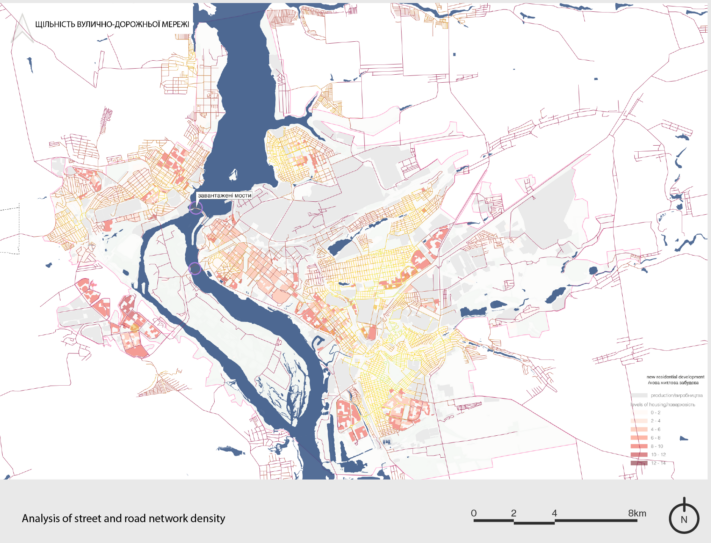
For example, in Zaporizhia, a front-line city of 700,000 people, one third of the population left the city in search of a safer place. At the same time, the same number of people migrated to Zaporizhia from the occupied territories. This has led to a major housing crisis and problems of integration, adaptation and employment for the displaced.
The city’s economy must also adapt, as Zaporizhia is a large industrial centre that was logistically oriented and connected to the industrial east of the country, which is now partially occupied by Russia.
Many plans drawn up before the war are no longer relevant, so they need to be revised to take account of new realities. We are also trying to understand how to combine immediate needs with long-term improvements. Having a strategy will also help attract donors and investments in the future.
It must be difficult to work in such a complex context?
Yes, the task is difficult, the challenges are enormous, the responsibility we feel is huge. Ukrainian society is going through different and tragic experiences of the war we are now facing. It is important to work with people and listen to different voices. We need to ensure the participation and involvement of civil society in decision-making processes at all levels of our work.
So what’s next, how do you look into the future?
I’ve decided to return to Ukraine now, even though the war is not over. I believe that as a professional I can do more for our resilience there. I want not only to develop plans and recommendations but also to stand together with my people.
I also hope that in the future we will continue our professional solidarity cooperation with INBO and other Dutch companies for our mutual benefit.
